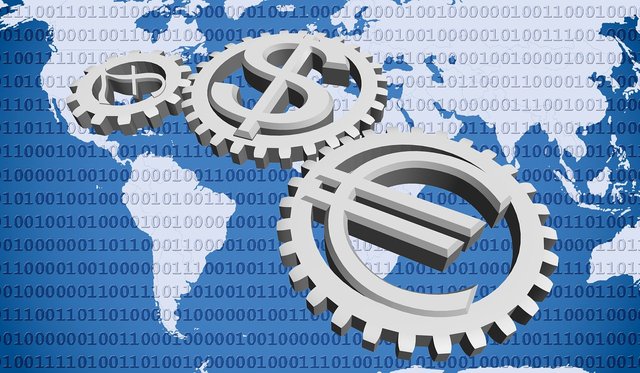In a moment of hypocrisy, Trump asks China to stop government support of high tech

Unbelievable. The leader of the largest capitalist country in the world (very politely) asks the leader of China, the largest communist government in the world, to stop supporting their high tech industries with government subsidies. In recent trade talks initiated by President Trump, the United States has made the following demands of China as reported by The New York Times:
China must …
■ Cut its trade surplus by $100 billion in the 12 months starting in June, and by another $100 billion in the following 12 months.
■ Halt all subsidies to advanced manufacturing industries in its so-called Made In China 2025 program. The program covers 10 sectors, including aircraft manufacturing, electric cars, robotics, computer microchips and artificial intelligence.
■ Accept that the United States may restrict imports from the industries under Made in China 2025.
■ Take “immediate, verifiable steps” to halt cyberespionage into commercial networks in the United States.
■ Strengthen intellectual property protections.
■ Accept United States restrictions on Chinese investments in sensitive technologies without retaliating.
■ Cut its tariffs, which currently average 10 percent, to the same level as in the United States, where they average 3.5 percent for all “noncritical sectors.”
■ Open up its services and agricultural sectors to full American competition.
The United States also stipulated that the two sides should meet every quarter to review progress.
(emphasis mine)
Isn't that Ironic? For many, the irony can be hard to see because it is often assumed that the US government doesn't subsidize American industry. We're all about free enterprise, right?
The most obvious irony is that that a US president, a conservative Republican, has made a very public statement that implies the following: That American private enterprise cannot possibly hope to compete against a communist government subsidized high technology sector.
Now here's the hypocrisy in the American side of the trade talks. The US federal government offers many direct and indirect subsidies of American business and has done so for much of modern history. First and foremost are the patents and copyrights issued by the United States government.
According to economist Dean Baker, prescription drugs alone cost Americans $380 billion a year, for drugs that in a free market, would cost about $80 billion. Baker has been a champion of the middle class by pointing out in an article published a couple days ago that:
The government pays for many items (like innovation and creative work) by granting patent and copyright monopolies rather than direct spending. In the case of prescription drugs alone, these monopolies cost us roughly $380 billion a year (almost 2.0 percent of GDP) in higher drug prices. If we add in the additional costs in medical equipment, software, and other areas we are likely over $1 trillion a year.
American patents are an implied subsidy of $1 trillion a year for American business. That implies a transfer of wealth above and beyond what the free market would bear. Taken altogether, all technology patents incur far greater costs on Americans than we wish to acknowledge. And if you'd like to cut the federal deficit, consider the possibility that the burden of royalties on intellectual property could prevent us from paying down that debt.
Did you notice those bullet points about how China must strengthen intellectual property protection? I sure did. Patent holders depend on that cash flow. Patent holders depend on the US government to impose what is essentially a private tax upon the rest of us. Patent holders would really like to see China respect those patents and pay those royalties.
The US government offers enormous subsidies for American business that few are willing to acknowledge in this debate between Trump and China.
By at least one estimate, corporate welfare in America is at least $100 Billion a year, not including patents and other intellectual property. So it is reasonable to say that American business receives at least $1.1 trillion in support from the federal government. That's 5% of GDP in a $19 trillion economy.
And what about government contractors who manage to skate on fraud and abuse? And consider the case of a businessman who buys an expensive car for his business and writes off the cost of the car as a business expense, while using it for personal outings. But my favorite, one that I have seen as an IT professional: The boss sends me to his house to fix his kid's personal computer, one that isn't even used for business. How long has this been going on?
To be fair, I'm actually really glad to see someone at the top finally talking about the trade deficit. I'm glad to see that we're finally taking action on a trade deficit that has been taking economic demand from the United States and sending it abroad to some other country. When that economic demand leaves, it takes jobs with it. It takes pressure to increase wages with it. It takes employee bargaining power with it.
The only people who benefit from a trade deficit are the people who write the public policy to make it happen. The CEOs and the MBAs who, since around 1990, found that manufacturing is more profitable abroad than at home benefit from the trade deficit. Where are they now?
In 2017, our trade deficit was $566 billion. Just think how many jobs that could bring back home if we were to balance trade with all of our partners. The trade deficit exists as a public policy decision, it is not just how the economy works. Democrats and Republicans alike wrote laws that created the conditions that gave rise to the trade deficit we see now. Democrats and Republicans alike received campaign contributions from wealthy interests that wanted the trade deficit
Take note that I'm not a Trump supporter. I'm not a Clinton supporter, either. I don't believe in party politics or identity politics. I am non-partisan. I'm interested in policies that work for all of us, not just the anointed few who have the money and the connections to write laws that favor themselves.
With that said, I hope that our trade deficit can be balanced based on fair trade, not "free trade" as the current state of trade law has been sold to us. I also hope that we can publicly admit that we might not be in a position to make demands on the Chinese government.


A basic guaranteed income in the context of Maslow's Hierarchy of Needs
A sort of political movie review: Star Wars: Rogue One
Happiness isn't getting everything you want - happiness is a skill
The opposite of love is not hate, it is apathy
Fate, impunity and altruism
Upvoted and resteemed my friend. Thank you for using human services.
Good one. We wake up, stepping, running and winning for various goal.
Good luck with that..